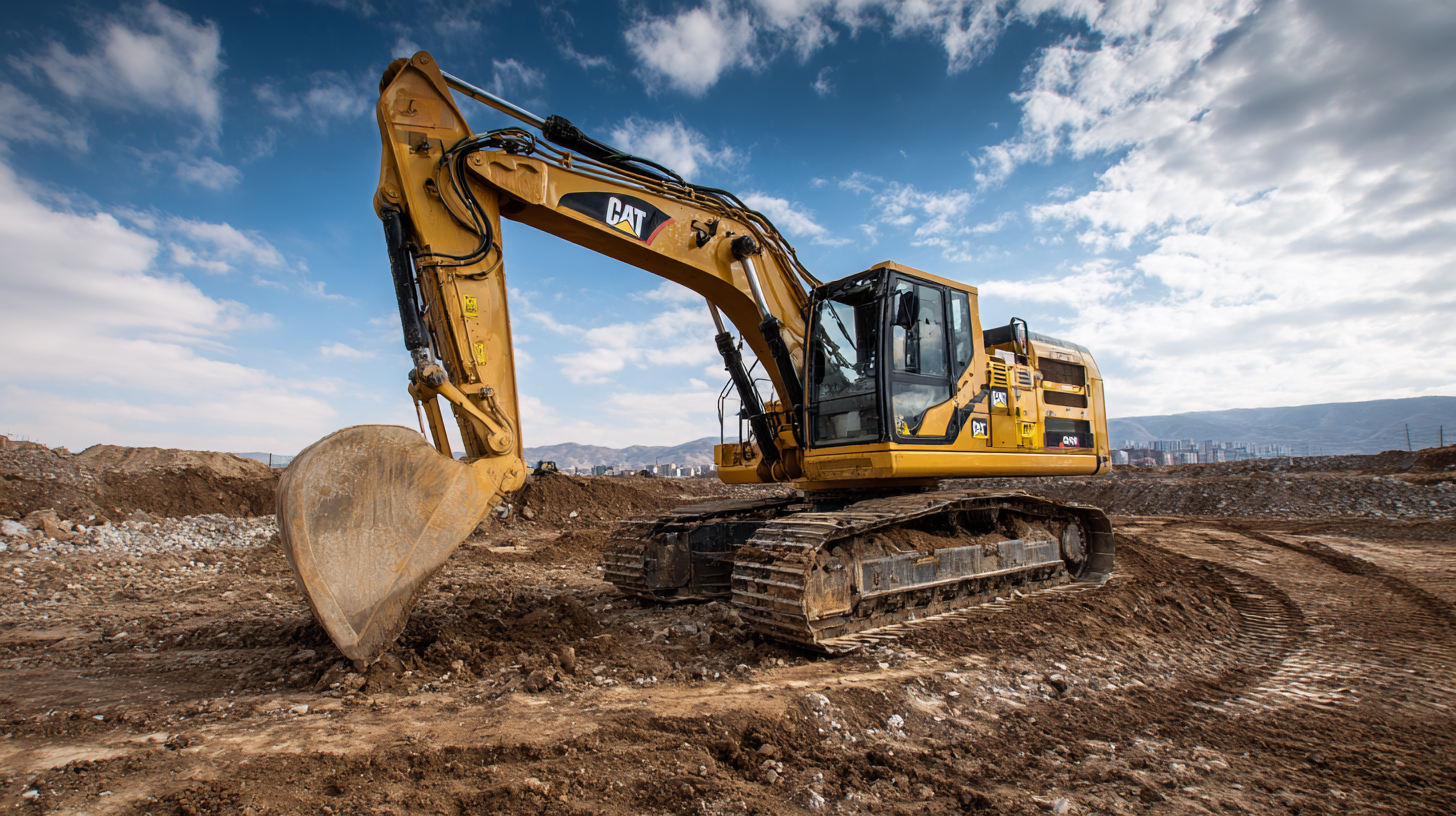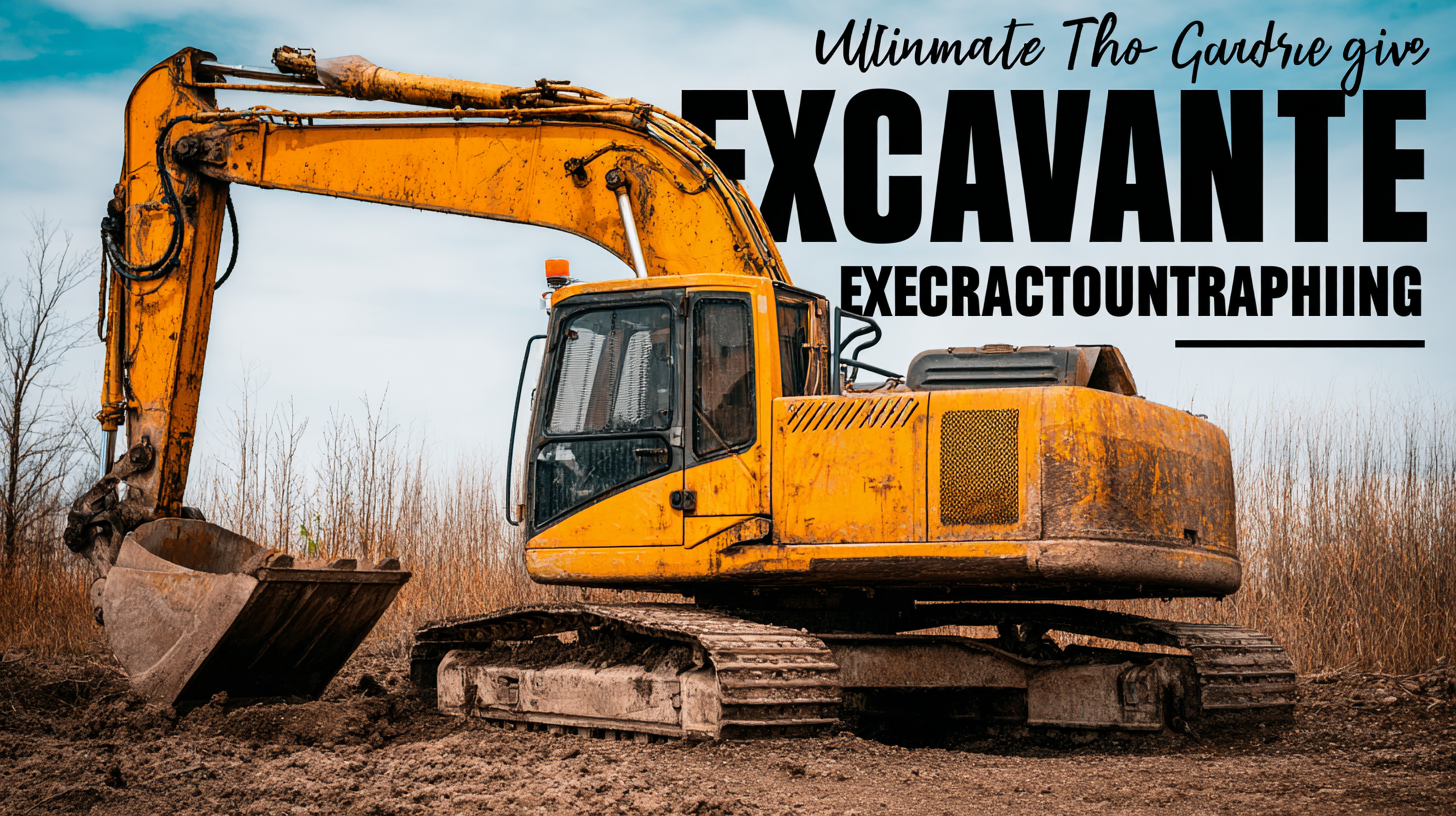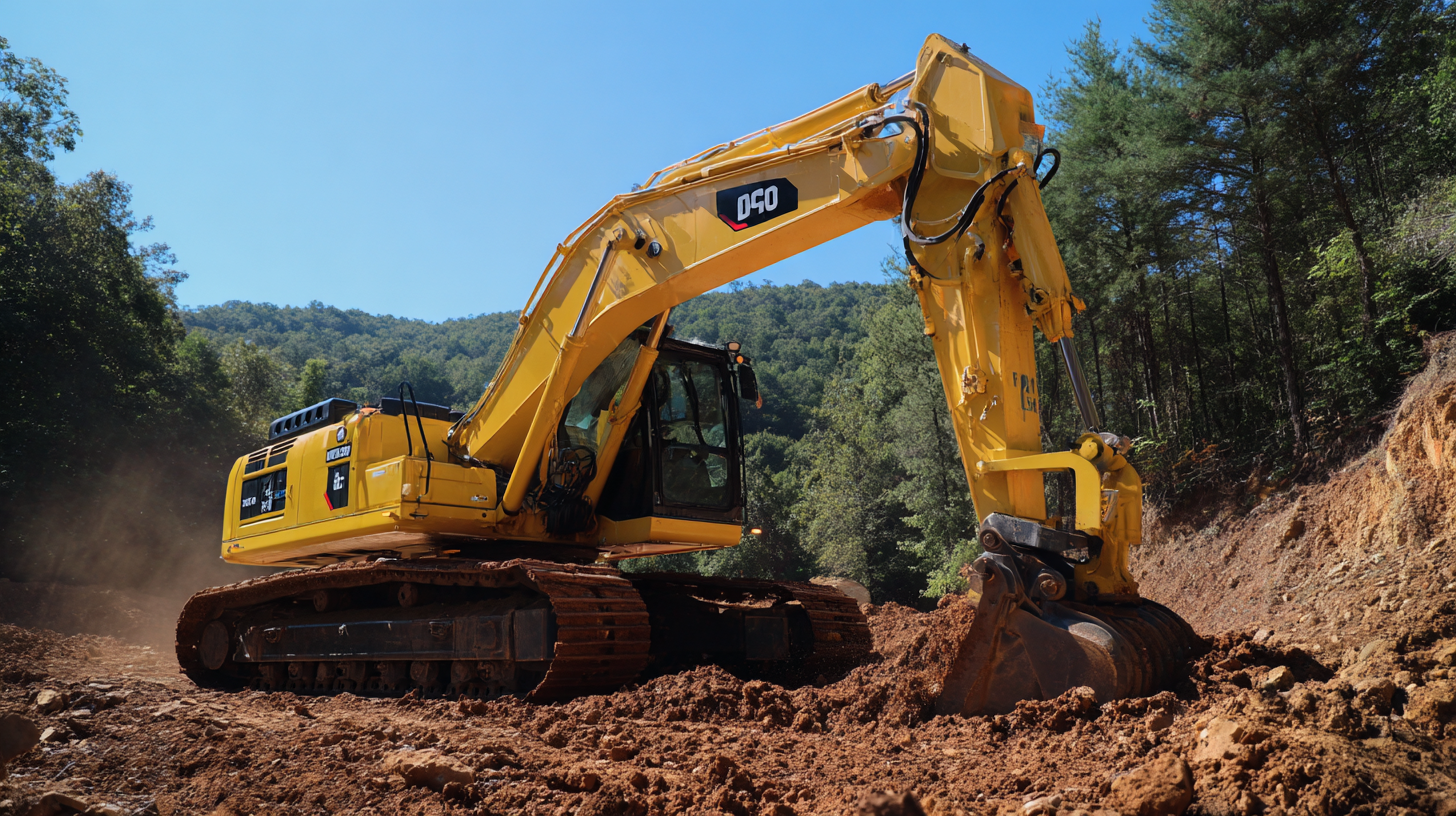Blog
Ultimate Guide to Choosing the Best Excavating Equipment for Your Projects
The construction and excavation industry is on the brink of a significant transformation, driven by the technological trends highlighted in reports like the "2025 Technology Trends in the Industry." As projects become increasingly complex, the need for efficient and effective machinery is more critical than ever. According to market research from IBISWorld, the global excavating equipment market is projected to grow at a robust rate of 5.3% annually, reaching an estimated $29 billion by 2025. This surge underscores the vital role of excavating equipment in meeting the demands of modern construction, from urban development to infrastructure projects. In this ultimate guide, we will delve into the key factors to consider when selecting the best excavating equipment for your projects, ensuring you stay ahead in an ever-evolving industry landscape.

Factors to Consider When Selecting Excavating Equipment for Your Project
When selecting excavating equipment for your project, it’s crucial to consider several key factors to ensure efficiency and cost-effectiveness. One primary consideration is the type of terrain you'll be working on. According to the American Society of Civil Engineers (ASCE), nearly 40% of construction delays are attributed to inadequate equipment choices for site conditions. Therefore, assessing the soil type, moisture levels, and potential obstacles can guide you in selecting the appropriate excavator or backhoe.
Another important factor is the size and scale of your project. The Construction Equipment Association (CEA) reports that correctly sizing equipment can lead to a productivity increase of up to 20%. Larger projects often benefit from heavier machinery, while smaller tasks may require compact excavators for maneuverability. Additionally, evaluating the excavation depth and volume will help determine the bucket capacity and reach required for optimal performance. Investing time in these considerations can significantly impact the success of your project and keep costs under control.
Types of Excavating Equipment and Their Specific Uses
When it comes to excavating equipment, understanding the types and their specific uses is crucial for executing your projects effectively. From backhoes to bulldozers, each machine serves a unique purpose. For instance, backhoes are versatile and can perform tasks such as digging, trenching, and lifting materials, making them ideal for smaller construction sites. On the other hand, bulldozers are designed for heavy-duty earthmoving and site preparation, perfect for clearing large areas of land swiftly.
When selecting the right excavating equipment for your project, consider the scale and specific requirements of the job. For example, if you need to dig narrow trenches for utility installations, a mini-excavator may be the best choice due to its compact size and maneuverability.
**Tip:** Always assess the terrain before making your decision. Rough, uneven ground may require a tracked machine for better stability, while firm, flat surfaces can accommodate wheeled equipment. Additionally, familiarize yourself with the equipment's operating capacity to ensure it can handle the job efficiently without causing delays or complications.

Cost Analysis: Budgeting for Excavating Equipment Acquisition
When planning for your excavation projects, budgeting for the right equipment is crucial. According to the Equipment Leasing & Finance Foundation, the overall construction equipment market is projected to reach approximately $80 billion by 2025. Given the substantial investment required, it is vital to conduct a comprehensive cost analysis that includes not only the purchase price of the excavating machinery but also maintenance, fuel consumption, and potential downtime costs.
Tip: Consider renting equipment when starting new projects or if your needs are seasonal. This can significantly reduce upfront costs and allow you to allocate funds to other critical aspects of your project.

Moreover, the average cost of an excavator can range from $100,000 to over $500,000, depending on the model and specifications. It's important to analyze your specific project requirements and how often you'll need the equipment. Additionally, a report from IBISWorld indicates that equipment depreciation plays a significant role in budgeting. Carefully projecting the useful life of your excavating equipment can help you understand long-term costs and investments.
Tip: Always factor in additional costs such as transportation and insurance when budgeting for new excavating equipment. This foresight ensures that you fully understand the financial commitment you're making, and can prevent project delays due to unforeseen expenses.
Maintenance Tips for Optimal Performance of Excavating Machines
When it comes to the maintenance of excavating machines, ensuring optimal performance requires a deep understanding of both the machinery and industry best practices. With the introduction of new models and advanced technologies, regular maintenance has become even more crucial. According to industry reports, failing to follow a proper maintenance schedule can reduce the longevity of excavation equipment by as much as 20%. Each model, like the new mid-size excavators with enhanced tiering performance, necessitates specific care routines that cater to their unique capabilities.
Preventive maintenance is key. Implementing measures such as fluid checks, frequent inspections, and timely repairs can mitigate costly breakdowns. For instance, recent advances in hydraulic systems and machine ergonomics demonstrate the importance of adapting maintenance strategies to each model’s specifications. Utilizing service contracts can also aid in scheduling routine maintenance tasks and keeping up with manufacturer recommendations. By prioritizing maintenance, operators not only enhance the productivity of their machinery but also contribute to the overall efficiency of their projects. This proactive approach to upkeep can significantly impact operational costs and project timelines.
Future Trends in Excavating Equipment Technology to Consider
As the construction industry evolves, embracing future trends in excavating equipment technology becomes essential for optimal project efficiency. Reports indicate a significant rise in the adoption of advanced machinery, including autonomous excavators, which are projected to increase productivity by up to 30% by 2025. These innovations not only streamline operations but also minimize human error, enhancing safety on job sites.
Furthermore, the integration of intelligent software in excavating machines, such as GPS guidance and real-time data analytics, is set to revolutionize project management. According to a recent market analysis, the global market for smart construction equipment is expected to reach $14 billion by 2030. This shift towards digitalization allows for better resource allocation and project tracking, leading to reduced operational costs and improved timelines. Adopting these technologies is no longer a choice but a necessity for companies aiming to stay competitive in an increasingly automated world.
